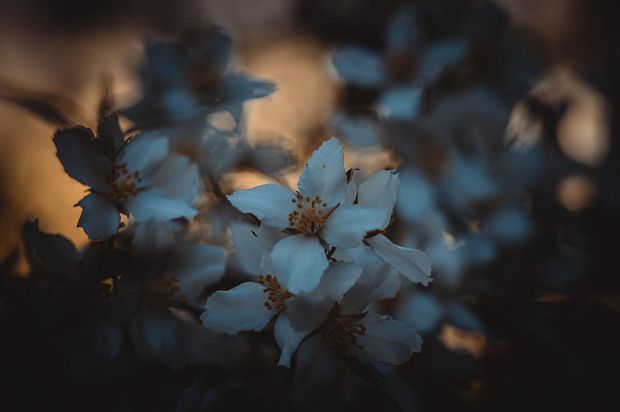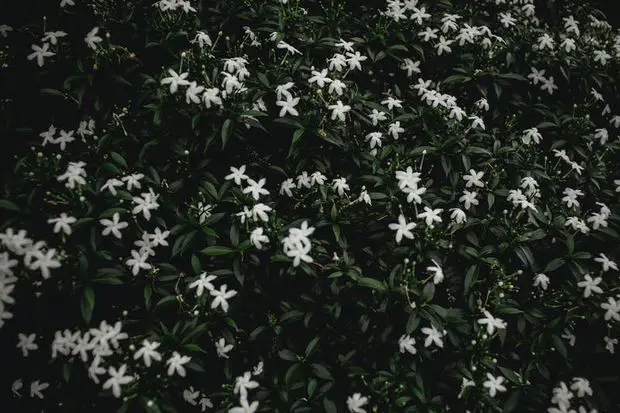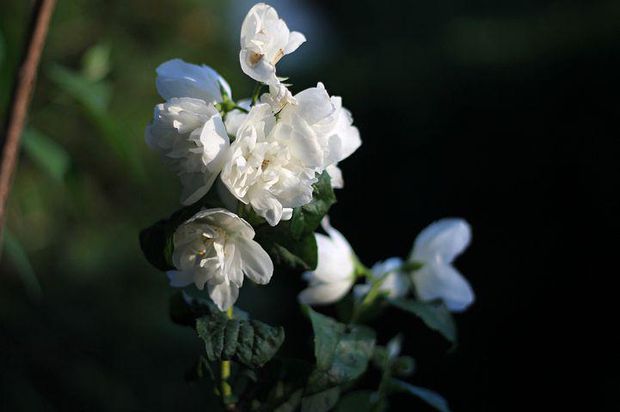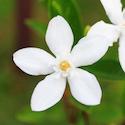Native to the most amazing tropical areas of the world, such as, Asia or India, jasmine plants, can be both grown and kept as a vine or a shrub for the outdoors enjoyment and/or as an indoor houseplant to fulfil the air of your favourite room of the house with its perfume.

Jasmine plant is an evergreen and perennial vine, that will grow all year round, requiring a specific amount of watering, sunlight and feeding for its optimal growth and developing its always desired flowers. When jasmine plants are given the right amount of humidity, warmth and water, their flowers will blossom and last open for a couple months.
Jasmine plants are recognised all around the globe for their exquisite and unique flowers that produce an intense fragrance through the blooming season, especially at night. Jasmine flowers, are delicate and waxy blossoms, that come in a white, cream, yellow and other colours (depending on the specie) that will bloom every year if treated with care.
There are over 200 species of jasmine plants and each of them have a different and distinct scent that will attract a wide range of pollinators to propagate the plant and also making it really popular, not only, to decor the garden or your indoors home, but also, becoming the to go ingredient for perfumes, skin care, soap, tea, etc.
From those 200 distinct species, the most famous ones are the Night-blooming jasmine, Arabian jasmine or Mogra, Star jasmine and Pink jasmine, which blossoms will produce and incredible intense and rich scent, especially at night, even more so if there is a full moon.
As mentioned above, jasmine blooms produce and intoxicating scent, unique to their specie, that are known throughout the globe as “ intensely aromatic” “ french perfume scent” and “ the poet’s flower” among other quotes. These quotes often describe the jasmine scent as, blossoms with a sweet floral hint, musky, and green wood.
When we refer to jasmine scent in the terms quoted above, we are actually, most of the times, describing two beautiful species of jasmine, known as, Jasminun grandiflorum, Cestrum nocturnum and Arabian jasmine, sometimes also known as Sambac jasmine.
We can’t help noticing though, that sometimes, specially during the hottest weeks of the summer, that our jasmine plant doesn’t smell as strong as it does during the night time.
The reasons why jasmine plant flowers smell more at night are mainly due to an internal circadian clock from the plant that regulates the transcriptional factors and gene expression of the floral volatiles that the Jasmine plants produce. Also, environmental factors, such as, the light and the temperature have an influence on floral scent emission in the flower cycle.
JASMINE FLOWER SCENT AND POLLINATION
Jasmine plants flowers produce a scent. This scent is chemically speaking, a sophisticated mixture of low molecular weigh compounds, intended, together with their color and shape, to attract pollinators.
The pollination process is an essential activity for jasmine flowers to produce an offspring, to ensure the next jasmine generation. Jasmine blossoms and their intense scent are the responsible of the plant’s power to attract pollinators, such as, bees, nocturnal bees, moths, flies and bumblebees among others.
These floral features are temporally orchestrated in jasmine species, as some flowers open and close at particular times of the day, reason why some jasmine species smell stronger at night.
Due to evolutionary events, pollinator insects have developed their structures in a way that they are very sensitive to detect the distinct odours and scents and their activities throughout the day will depend on when the jasmine flowers exhibit and their scent at their peak of emission.
The scent release process by jasmine flowers during the day or night is not only correlated to their pollinators activity, but also, it happens this way to allow for an efficient usage of the energy in producing their fragrance to limit the visibility of plant herbivores predators.
Generally speaking, Jasmine plant flowers that are fully developed and ready to be pollinated, will produce their maximum level of scent as their pollinators will also be at their highest level of activity. Jasmine plants which highest level of scent production is mainly during the day time will be mostly pollinated by butterflies, bees and wasps, whereas, jasmine plants which flowers launch their scent during the night will be mostly pollinated by bats, nigh bees and moths.
Before we go deeper into why jasmine flowers smell more at night (most of the species), we need to know a couple of things about flower development. During the event of flower development, immature flowers are not yet ready to be pollinated and hence their production of scent is way less and mostly during the daytime, versus mature and older flowers that will be more productive during the night time. Once old flowers have been sufficiently pollinated, then, the quality and quantity of the odours produced decline and so it does the life span of those flowers.

Research has shown that the main driver for jasmine plant flowers to produce their scent at maximum levels during the night time is due to the fact that these plants have a what is called, “circadian clock”. This intrinsic clock is an endogenous oscillator that controls consistently and rhythmically the physiological event of scent production.
This internal clock also synchronises with two other environmental factors implicated in the scent production of jasmine plant flowers. These factors are temperature and light during the day-night cycles. Jasmine plants count with two different photoreceptors (phytochrome and cryptochrome), to regulate that circadian clock, as the changes in temperature and light vary from dusk to dawn throughout the day.
Jasmine plants produce some chemicals, called floral volatiles compounds involved in scent production and flower/fruit ripening and plant defence. These compounds are: linalool oxide, nerolidol, jasmine lactone, methyljasmonate and methyl-epi-jasmonate. Among others, the most important one is called linalool, which activation, makes these plants scent to peak at night.
What happens is that, the minute the jasmine flowers have just bloomed, the plant begins the emission of linalool that starts early in the morning being constant during the day and peaking at night. Not only that, but also under the different light or dark conditions the odour cycle repeats for a number of days until the flower lifespan decays.
Temperature, is also an environmental factor involved in affecting the flowering cycle by lengthening the period at low temperatures and shortening it at higher temperatures.

In low temperature conditions, jasmine flowers will open but won’t emit odour and when the temperature is slightly higher, the flowers will open and will emit much more.
This usually happens at night in tropical areas, reason why jasmine species smell more at night.
Those floral volatiles will be easily evaporated under the hot sun, disappearing from the atmosphere and your surroundings, that is why during the night, those oils (flora volatiles) produced by the flower buds and petals will evaporate at a much slower rate when the temperature is lower. As a result, jasmine plants have evolved in a way that their gene expression for scent production occurs at night time.
There you go! Now you know the reasons why jasmine plants smell more at night. Especially, the Night blooming jasmine and Jasminum Grandiflorum, which flowers, open fully at night when their pollinators are more active.
